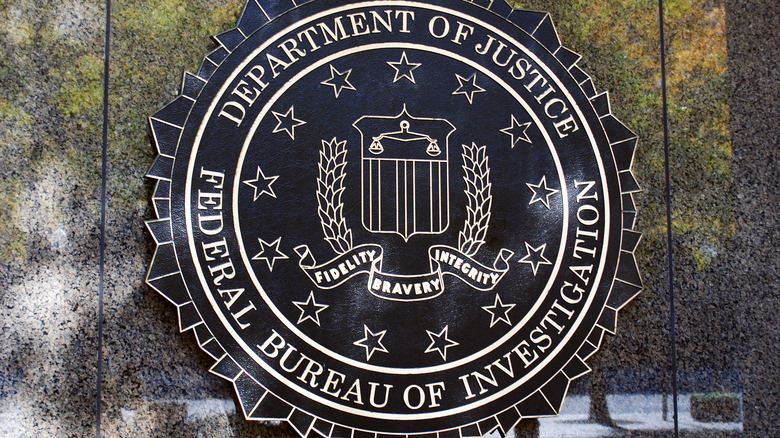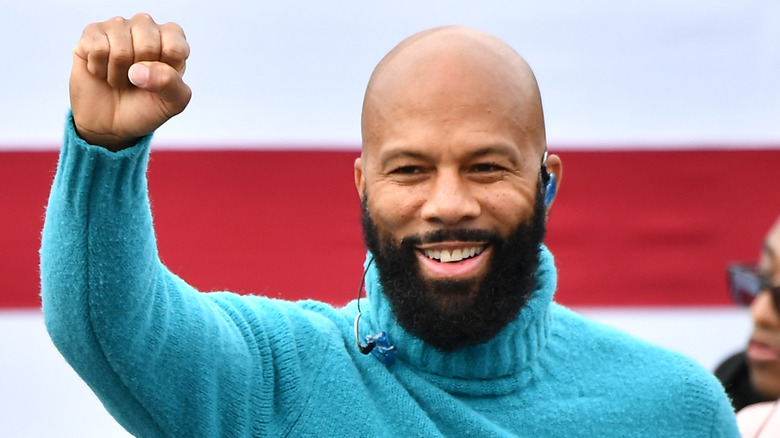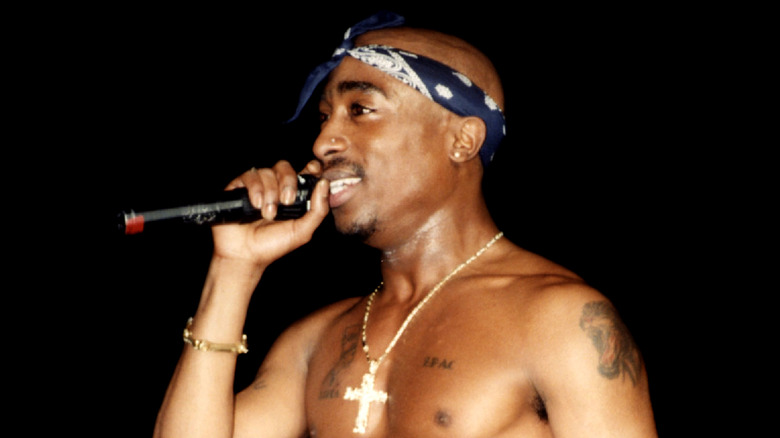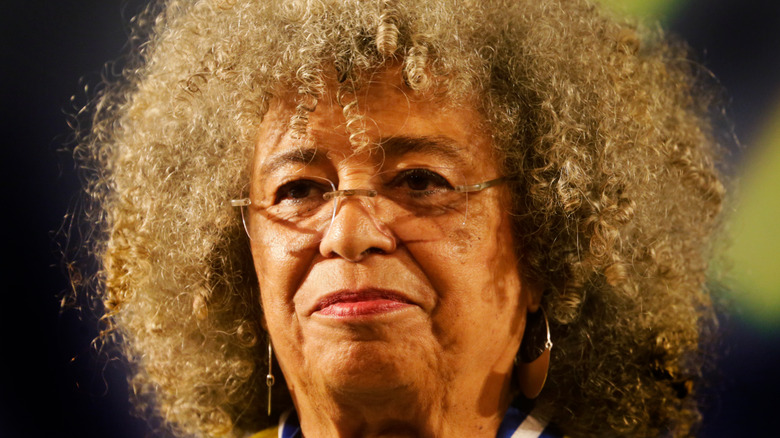The Truth About The First Woman Added To The FBI's Most Wanted Terrorists List
The FBI's Most Wanted Terrorists list has listed all the infamous names you associate with terrorism. Osama Bin Laden was on the list for decades, and his successor, Ayman al-Zawahiri, still is (although Zawahiri may actually be dead, per France24). The list today is overwhelmingly male and the names overwhelmingly in Arabic. One name stands out, though. Right at the top of the list is a woman with a rather ordinary, American English name: Joanne Deborah Chesimard.
But there's nothing ordinary about Ms. Chesimard. In 2003 she became the first woman to make the FBI's Most Wanted Terrorists list. The reason? "Domestic terrorism," the FBI file reads. "Unlawful flight to avoid confinement — murder." It notes that she is between 70 and 75 years old, black, possibly living in Cuba, and that she "SHOULD BE CONSIDERED ARMED AND DANGEROUS," in all caps. It also lists her long string of pseudonyms and alternate identities, including the one that made her notorious, feared, and feted all over the United States: Assata Shakur.
Murder of a cop
What crime put this woman on the first page of the catalogue of the world's most notorious criminals? It started with murder. In 1973, Chesimard, already known as Assata Shakur (above), was a member of a militant African American organization, the Black Liberation Army (BLA). Documents hosted by the Department of Justice and Indiana University explain that the Black Liberation Army was a Marxist "urban guerrilla" network, led by former Black Panthers and dedicated to the violent overthrow of the U.S. government. This involved robbing banks, and Shakur was already wanted in New Jersey for robbery and other felonies.
On May 2, 1973, Shakur was driving with two other BLA members when a New Jersey State Police vehicle signaled for them to pull over. Instead, the three opened fire on the two police officers in the cruiser. In the ensuing battle, one BLA member was killed and one of the state troopers was wounded; Shakur and her partner executed the wounded officer with a gunshot, then fled the scene. A manhunt turned up them up in short order, and both were charged with murder.
Escape to Cuba
Shakur would remain jailed for four more years as the court case dragged on. Finally, in 1977, came the verdict: guilty of first degree murder, assault and battery of a police officer, assault with a dangerous weapon, assault with intent to kill, illegal possession of a weapon, and armed robbery. The judge sentenced her to life in prison at the Clinton Correctional Facility for Women.
But Shakur's exploits were hardly over. Two years into her sentence, three of her BLA comrades arrived at the Clinton Correctional Facility, announcing themselves as visitors. As soon as they were in they drew pistols, took two guards hostage, and demanded Shakur and a van. The other guards complied, and the four militants drove off with the guards in tow. Eventually they abandoned the van and the unharmed guards, got into a waiting car, and vanished (via The Source). By 1984, Shakur had fled to Cuba, where the Castro government granted her political asylum. According to the FBI, she's still there.
Hiphop's tribute
Does this make her a villain? It depends who you ask. For many, especially Black Americans with deep cultural and emotional ties to the Black Power movement of the 1970s, Shakur is a heroine. Essence notes that hiphop artists have long paid tribute to Shakur, among them Public Enemy and Common (above), who dedicated his "Song for Assata" to her.
"A Song for Assata" recounts the night of Shakur's battle with the two New Jersey state troopers in vivid, emotional terms, detailing the agony of the physical wounds she incurred and the misery of her life in jail. In Common's telling — at odds with the New Jersey State Police's — the two state troopers fired the first shots at Shakur and her comrades, who had their hands up on the troopers' orders. Cee-Lo sings the chorus: "I'm thinking of Assata / Listen to my love, Assata / Your power and pride is beautiful / May God bless your soul." ("A Song for Assata" is available on YouTube.)
Aunt of a legend
But Shakur's closest tie to the world of hiphop is a family one. Joanne Chesimard became Assata Shakur in New York in the late 1960s, exchanging her English name for something that felt more authentic. Her sister-in-law changed her name for the same reason, becoming Afeni Shakur. (Shakur was a popular name in their circles.) When Afeni had a son, she asked Assata to stand godmother to him (via Newsy). It may have been Assata who suggested a revolutionary name for the baby: Tupac Amaru, for the Indigenous Peruvian who resisted European rule.
Yes, the child was that Tupac Shakur. Tupac was never shy about voicing his support for his aunt, even name-checking her in his 1991 album "2Pacalypse Now," in the furious lyrics of his protest song, "Words of Wisdom": "America, you reap what you sow ... Assata Shakur, America's nightmare." (The song is posted on YouTube.)
Folk hero or terrorist?
Beyond the music scene, a number of voices in American's black community have spoken out in support of Shakur. Angela Davis (above) — the iconic militant, one-time fugitive from the FBI, and professor emerita at UC Santa Cruz — wrote the forward to Shakur's autobiography and has called for her exoneration. In a 2014 op-ed for The Guardian, Davis wrote that Shakur was "falsely charged." "What interest would the FBI have," she asked rhetorically, "in designating a 66-year-old black woman, who has lived quietly in Cuba for the last three and a half decades, as one of the most dangerous terrorists in the world?"
There is a Robin Hood flavor to Shakur's capture and escape, particularly to those who see the American criminal justice system as incurably racist. Calls of "Free Assata!" sprang up during the Black Lives Matter protests of the 2010s, and President Trump demanded her extradition on the day that a successful biopic about Tupac debuted in theaters, which struck many African Americans as naked hostility (per XXL).
Nevertheless, no one seriously doubts Shakur's involvement in the killing of a New Jersey policeman and a string of other violent crimes. The FBI certainly doesn't. The reward for information leading to Shakur's arrest is $2 million.





